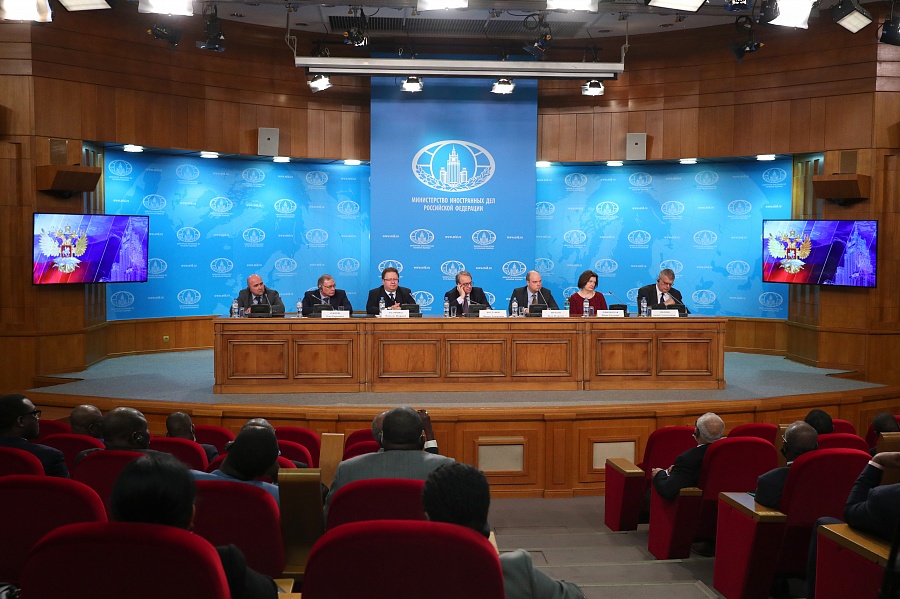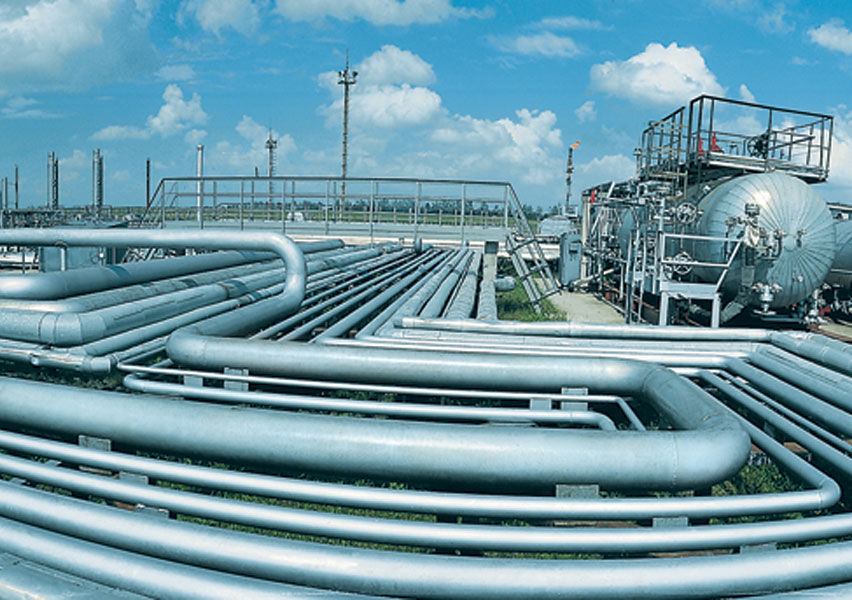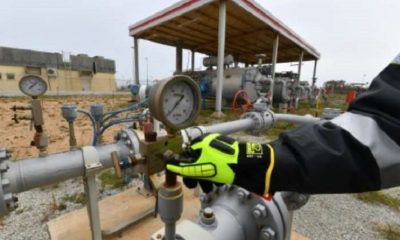World
Russia Meets African Envoys on Russia-Ukraine Crisis

By Kester Kenn Klomegah
Russian diplomats at the Foreign Ministry have been stepping efforts to get first-hand blistering information on the Russia-Ukraine crisis, its primary causes and implications to African governments.
On February 24, Russian President Vladimir Putin announced a special military operation, after both the Federation Council and the State Duma (legislative chambers) approved the implementation of the presidential decision that has since sparked debates throughout the world. It has also pushed for the United States and Canada, European Union members and many other external countries to impose sanctions against Russia.
Long before the special military operation started on February 24 aimed at “demilitarization and denazification” in the former Soviet republic of Ukraine, there has been information disseminated, either fabricated or the absolute truth about Russia’s intentions using the power of social media. As seen in practice, Western and European media have strong operational networks throughout Africa.
Russian Foreign Ministry is worried about anti-Russia publications, the policy of propaganda and misinformation in some African media outlets. Obviously, Russian media is extremely weak on the African continent, and consequently, local African media replicate information from western sources.
Over these past years, Russian diplomats claim to have a common understanding, expressions of solidarity and trusty position with African friends on global questions at international platforms, especially at the United Nations.
Nevertheless, the African Union, Regional Economic Organizations and the African governments are still and distinctively, divided over the Russia-Ukraine crisis due to divergent views and worse, afraid of contradictions and confrontations posed by the seemingly endless crisis and its effects on future relations.
Some policy experts say this Africans’ voting scenario at the UN opens a theme for a complete geopolitical study and analysis. It is necessary to understand its specific policy implications. As a new world is awakening, African leaders still believe that all countries have to respect and operate within the confines of international law. The circumstances demand settling disputes by peaceful means in such a manner that international peace and security, and justice are not endangered. All countries must be guided profoundly by the principles of non-interference in internal matters, respect for national sovereignty and territorial integrity.
There is much of disinformation spreading around, including inside Africa, and consequently, the Russian Foreign Ministry’s special meetings with African diplomatic representatives was to use the diplomatic channels to send down the official situational truth about the Russia-Ukraine crisis to various African governments.
According to reports, Russia and Africa have a close relationship and it becomes necessary to update with substantial information for geopolitical reasons. It was intended to provide an explicit understanding of the genesis of the crisis. With the African diplomatic missions, the Russian Foreign Ministry has held two briefings, and one other special briefing with the Arab countries that included North Africa and the Arab world.
Both on March 10 and 22, Special Representative of the President of the Russian Federation for the Middle East and Africa, Deputy Minister of Foreign Affairs of Russia Mikhail Bogdanov held special briefings for the heads of diplomatic missions of the African and Arab countries accredited in Russian Federation. It was fully devoted to the entire situation around Ukraine.
The diplomats were informed the reasons, goals and objectives of the ongoing special military operation, including those to ensure the demilitarization and denazification of Ukraine, protect the long-suffering people of Donbass and eliminate the threat to Russia’s national security emanating from Ukrainian territory. There were also significant issues related to ensuring the security of the civilian population in Ukraine, the organization and operation of humanitarian corridors, and the provision of assistance to refugees.
The Foreign Ministry further explained to the representatives of African embassies questions relating to requests for assistance in providing safe exits (evacuations), including their citizens, from crisis-ridden Ukraine. During the meetings, questions from African diplomats about the activities of embassies in Moscow under the conditions of illegitimate sanctions imposed by Western, European and other countries on the Russian Federation were answered.
In addition to these special briefings, Deputy Minister Bogdanov held bilateral discussions with Ambassadors from Benin, Djibouti, Egypt, Libya, Nigeria, Somalia, South Africa and Tanzania. Interesting to recall here that at the UN on March 2, Nigeria and Egypt were among the 28 African countries that voted to condemn Russia.
On March 22, Deputy Minister of Foreign Affairs of the Russian Federation Sergey Vershinin also held meetings with representatives of African states in the UN Security Council – Ambassador of the Gabonese Republic to the Russian Federation, Johanna Rose Mamiaka; Ambassador of the Republic of Ghana to the Russian Federation, Oheneba Dr Lesley Akyaa Opoku-Ware and Ambassador of the Republic of Kenya in the Russian Federation, Benson Ogutu.
Topical issues of Russia’s interaction with the African “troika” in the UN Security Council were discussed, incl. the humanitarian situation in Ukraine, the state of affairs in Libya, Somalia, and the reform of the Security Council. While briefing the African representatives, Minister Bogdanov indicated and reaffirmed Russia’s long-term intention to strengthen and develop traditionally friendly ties with African states was reaffirmed.
For their part, the heads of diplomatic missions thanked the Russian side for the detailed coverage of events in Ukraine and the opportunity to exchange views on topical aspects of the Russia-African agenda.
Earlier on February 28, Bogdanov received Ambassador of the Republic of South Africa, Mzuvukile Jeff Maketuka, exchanging messages on the occasion of the 30th anniversary of the establishment of diplomatic relations between Russia and South Africa.
During the conversation, both discussed issues of further development of traditionally friendly Russia-South African relations, with an emphasis on strengthening mutually beneficial cooperation in the trade, economic, scientific and humanitarian spheres. Moscow and Pretoria eternally hope to deepen political dialogue and maintain effective coordination of positions in the UN, BRICS, the G20 and other international platforms. Foreign Minister Sergei Lavrov has also spoken with his African counterparts, including Equatorial Guinea, Morocco and South Africa.
Russia and South Africa are members of BRICS group. Soviet Union (now Russia) has maintained ties dating back from apartheid times and during the struggle for political independence. South Africa was one of 17 African nations to abstain on the UN resolution demanding that Russia immediately withdraw from Ukraine. It took a similar stance during Putin’s annexation of Crimea in 2014. South African President Cyril Ramaphosa has come under fierce criticism over the official stand on the Russia-Ukraine crisis.
Prior to the February 24 crisis which unfolded in Ukraine, Russia indicated strong preparedness and high interests to broaden cooperation in trade and in the economic sectors in Africa. With an invariable commitment to strengthen and develop relations in a positive and constructive manner, and especially in these challenging circumstances, Moscow is still planning for the second Russia-African summit. The question of state support and business facilitation has been on the agenda these several years and was discussed during the panel session in Sochi.
Now Russia plans to open trade missions in a number of African countries, and of course, looking forward to exploring several opportunities in the African Continental Free Trade Area (AfCFTA), which provides unique and valuable access to an integrated African market of over 1.3 billion people. In practical reality, it aims at creating a single continental market for goods and services, with free movement of businesspeople and investments in Africa.
That, however, it has been, oftentimes trumpeted that the Russian business community lacks awareness regarding the current fast-changing state of the African market, along with trade and investment opportunities. There is an insufficient level of trust towards potential partners. It is necessary to establish an effective system of communication to guarantee reliability and integrity, sharing business information, between business associations in Russia and Africa.
According to the Russian Ministry of Foreign Affairs, preparations for the Russia-Africa summit are in the active stage. The dates of the summit have not been determined yet. The first Russia-Africa summit took place in October 2019, and it was co-chaired by Russian and Egyptian Presidents, Vladimir Putin and Abdel Fattah el-Sisi. The next summit is scheduled for autumn 2022.
World
Iranian Supreme Leader Ali Khamenei Dies After Air Strikes

By Dipo Olowookere
Iranian Supreme Leader, Mr Ayatollah Ali Khamenei, has died after coordinated airstrikes carried out by the United States and Israel on Tehran on Saturday morning.
His death was confirmed on Sunday morning by Iranian state media, which also disclosed that his daughter and grandchild were among those killed in the bombardment, which destroyed his compound.
Mr Khamenei was killed during a meeting with top leaders of the Middle East country yesterday, including the Defence Minister Amir Nasirzadeh and Revolutionary Guard commander Mohammad Pakpour, who reportedly died too.
His elimination has sparked mixed reactions, with some Iranians on the streets celebrating his demise, and others condemning the joint air strikes.
The President of the United States, Mr Donald Trump, described the late Iranian leader as “one of the most evil people in history,” expressing satisfaction at the action, which he said was “successful,” as it represented justice for both Iranians and Americans.
Meanwhile, Tehran has vowed to further respond to the attacks after initially firing missiles at six neighbours, including Qatar, Saudi Arabia, Kuwait, UAE, Bahrain, and Jordan.
Flight operations in the region have been disrupted because of the retaliatory action of Iran over the weekend, though most of the missiles were intercepted.
World
AfBD, AU Renew Call for Visa-Free Travel to Boost African Economic Growth

By Adedapo Adesanya
The African Development Bank (AfDB) and the African Union have renewed their push for visa-free travel to accelerate Africa’s economic transformation.
The call was reinforced at a High-Level Symposium on Advancing a Visa-Free Africa for Economic Prosperity, where African policymakers, business leaders, and development institutions examined the need for visa-free travel across the continent.
The consensus described the free movement of people as essential to unlocking Africa’s economic transformation under the African Continental Free Trade Area (AfCFTA).
The symposium was co-convened by AfDB and the African Union Commission on the margins of the 39th African Union Summit of Heads of State and Government in Addis Ababa.
The participants framed mobility as the missing link in Africa’s integration agenda, arguing that while tariffs are falling under AfCFTA, restrictive visa regimes continue to limit trade in services, investment flows, tourism, and labour mobility.
On his part, Mr Alex Mubiru, Director General for Eastern Africa at the African Development Bank Group, said that visa-free travel, interoperable digital systems, and integrated markets are practical enablers of enterprise, innovation, and regional value chains to translate policy ambitions into economic activity.
“The evidence is clear. The economics support openness. The human story demands it,” he told participants, urging countries to move from incremental reforms to “transformative change.”
Ms Amma A. Twum-Amoah, Commissioner for Health, Humanitarian Affairs and Social Development at the African Union Commission, called for faster implementation of existing continental frameworks.
She described visa openness as a strategic lever for deepening regional markets and enhancing collective responses to economic and humanitarian crises.
Former AU Commission Chairperson, Ms Nkosazana Dlamini-Zuma, reiterated that free movement is central to the African Union’s long-term development blueprint, Agenda 2063.
“If we accept that we are Africans, then we must be able to move freely across our continent,” she said, urging member states to operationalise initiatives such as the African Passport and the Free Movement of Persons Protocol.
Ghana’s Trade and Industry Minister, Mrs Elizabeth Ofosu-Adjare, shared her country’s experience as an early adopter of open visa policies for African travellers, citing increased business travel, tourism, and investor interest as early dividends of greater openness.
The symposium also reviewed findings from the latest Africa Visa Openness Index, which shows that more than half of intra-African travel still requires visas before departure – seen by participants as a significant drag on intra-continental commerce.
Mr Mesfin Bekele, Chief Executive Officer of Ethiopian Airlines, called for full implementation of the Single African Air Transport Market (SAATM), saying aviation connectivity and visa liberalisation must advance together to enable seamless travel.
Regional representatives, including Mr Elias Magosi, Executive Secretary of the Southern Africa Development Community, emphasised the importance of building trust through border management and digital information-sharing systems.
Ms Gabby Otchere Darko, Executive Chairman of the Africa Prosperity Network, urged governments to support the “Make Africa Borderless Now” campaign, while tourism campaigner Ras Mubarak called for more ratifications of the AU Free Movement of Persons protocol.
Participants concluded that achieving a visa-free Africa will require aligning migration policies, digital identity systems, and border infrastructure, alongside sustained political commitment.
World
Nigeria Exploring Economic Potential in South America, Particularly Brazil

By Kestér Kenn Klomegâh
In this interview, Uche Uzoigwe, Secretary-General of NIDOA-Brazil, discusses the economic potential in South America, particularly Brazil, and investment incentives for Brazilian corporate partners for the Federal Republic of Nigeria (FRN). Follow the discussion here:
How would you assess the economic potential in the South American region, particularly Brazil, for the Federal Republic of Nigeria? What investment incentives does Nigeria have for potential corporate partners from Brazil?
As the Secretary of NIDOA Brazil, my response to the questions regarding the economic potentials in South America, particularly Brazil, and investment incentives for Brazilian corporate partners would be as follows:
Brazil, as the largest economy in South America, presents significant opportunities for the Federal Republic of Nigeria. The country’s diverse economy is characterised by key sectors such as agriculture, mining, energy, and technology. Here are some factors to consider:
- Natural Resources: Brazil is rich in natural resources like iron ore, soybeans, and biofuels, which can be beneficial to Nigeria in terms of trade and resource exchange.
- Growing Agricultural Sector: With a well-established agricultural sector, Brazil offers potential collaboration in agri-tech and food security initiatives, which align with Nigeria’s goals for agricultural development.
- Market Size: Brazil boasts a large consumer market with a growing middle class. This represents opportunities for Nigerian businesses looking to export goods and services to new markets.
- Investment in Infrastructure: Brazil has made significant investments in infrastructure, which could create opportunities for Nigerian firms in construction, engineering, and technology sectors.
- Cultural and Economic Ties: There are historical and cultural ties between Nigeria and Brazil, especially considering the African diaspora in Brazil. This can facilitate easier business partnerships and collaborations.
In terms of investment incentives for potential corporate partners from Brazil, Nigeria offers several attractive incentives for Brazilian corporate partners, including:
- Tax Incentives: Various tax holidays and concessions are available under the Nigerian government’s investment promotion laws, particularly in key sectors like agriculture, manufacturing, and technology.
- Repatriation of Profits: Brazil-based companies investing in Nigeria can repatriate profits without restrictions, thus enhancing their financial viability.
- Access to the African Market: Investment in Nigeria allows Brazilian companies to access the broader African market, benefiting from Nigeria’s membership in regional trade agreements such as ECOWAS.
- Free Trade Zones: Nigeria has established free trade zones that offer companies the chance to operate with reduced tariffs and fewer regulatory burdens.
- Support for Innovation: The Nigerian government encourages innovation and technology transfer, making it attractive for Brazilian firms in the tech sector to collaborate, particularly in fintech and agriculture technology.
- Collaborative Ventures: Opportunities exist for joint ventures with local firms, leveraging local knowledge and networks to navigate the business landscape effectively.
In conclusion, fostering a collaborative relationship between Nigeria and Brazil can unlock numerous economic opportunities, leading to mutual growth and development in various sectors. We welcome potential Brazilian investors to explore these opportunities and contribute to our shared economic goals.
In terms of this economic cooperation and trade, what would you say are the current practical achievements, with supporting strategies and systemic engagement from NIDOA?
As the Secretary of NIDOA Brazil, I would highlight the current practical achievements in economic cooperation and trade between Nigeria and Brazil, alongside the supporting strategies and systemic engagement from NIDOA.
Here are some key points:
Current Practical Achievements
- Increased Bilateral Trade: There has been a notable increase in bilateral trade volume between Nigeria and Brazil, particularly in sectors such as agriculture, textiles, and technology. Recent trade agreements and discussions have facilitated smoother trade relations.
- Joint Ventures and Partnerships: Successful joint ventures have been established between Brazilian and Nigerian companies, particularly in agriculture (e.g., collaboration in soybean production and agricultural technology) and energy (renewables, oil, and gas), demonstrating commitment to mutual development.
- Investment in Infrastructure Development: Brazilian construction firms have been involved in key infrastructure projects in Nigeria, contributing to building roads, bridges, and facilities that enhance connectivity and economic activity.
- Cultural and Educational Exchange Programs: Programs facilitating educational exchange and cultural cooperation have led to strengthened ties. Brazilian universities have partnered with Nigerian institutions to promote knowledge transfer in various fields, including science, technology, and arts.
Supporting Strategies
- Strategic Trade Dialogue: NIDOA has initiated regular dialogues between trade ministries of both nations to discuss trade barriers, potential markets, and cooperative opportunities, ensuring both countries are aligned in their economic goals.
- Investment Promotion Initiatives: Targeted initiatives have been established to promote Brazil as an investment destination for Nigerian businesses and vice versa. This includes showcasing success stories at international trade fairs and business forums.
- Capacity Building and Technical Assistance: NIDOA has offered capacity-building programs focused on enhancing Nigeria’s capabilities in agriculture and technology, leveraging Brazil’s expertise and sustainable practices.
- Policy Advocacy: Continuous advocacy for favourable trade policies has been a key focus for NIDOA, working to reduce tariffs and promote economic reforms that facilitate investment and trade flows.
Systemic Engagement
- Public-Private Partnerships (PPPs): Engaging the private sector through PPPs has been essential in mobilising resources for development projects. NIDOA has actively facilitated partnerships that leverage both public and private investments.
- Trade Missions and Business Delegations: Organised trade missions to Brazil for Nigerian businesses and vice versa, allowing for direct engagement with potential partners, fostering trust and opening new channels for trade.
- Monitoring and Evaluation: NIDOA implements a rigorous monitoring and evaluation framework to assess the impact of various initiatives and make necessary adjustments to strategies, ensuring effectiveness in achieving economic cooperation goals.
Through these practical achievements, supporting strategies, and systemic engagement, NIDOA continues to play a pivotal role in enhancing economic cooperation and trade between Nigeria and Brazil. By fostering collaboration and leveraging shared resources, we aim to create a sustainable and mutually beneficial economic environment that promotes growth for both nations.
Do you think the changing geopolitical situation poses a number of challenges to connecting businesses in the region with Nigeria, and how do you overcome them in the activities of NIDOA?
The changing geopolitical situation indeed poses several challenges for connecting businesses in the South American region, particularly Brazil, with Nigeria. These challenges include trade tensions, shifting alliances, currency fluctuations, and varying regulatory environments. Below, I will outline some of the specific challenges and how NIDOA works to overcome them:
Current Challenges
- No Direct Flights: This challenge is obviously explicit. Once direct flights between Brazil and Nigeria become active, and hopefully this year, a much better understanding and engagement will follow suit.
- Trade Restrictions and Tariffs: Increasing trade protectionism in various regions can lead to higher tariffs and trade barriers that hinder the movement of goods between Brazil and Nigeria.
- Currency Volatility: Fluctuations in the value of currencies can complicate trade agreements, pricing strategies, and overall financial planning for businesses operating in both Brazil and Nigeria.
- Different regulatory frameworks and compliance requirements in both countries can create challenges for businesses aiming to navigate these systems efficiently.
- Supply Chain Disruptions: Changes in global supply chains due to geopolitical factors may disrupt established networks, impacting businesses relying on imports and exports between the two nations.
Overcoming Challenges through NIDOA.
NIDOA actively engages in discussions with both the Brazilian and Nigerian governments to advocate for favourable trade policies and agreements that reduce tariffs and improve trade conditions. This year in October, NIDOA BRAZIL holds its TRADE FAIR in São Paulo, Brazil.
What are the popular sentiments among the Nigerians in the South American diaspora? As the Secretary-General of the NIDOA, what are your suggestions relating to assimilation and integration, and of course, future perspectives for the Nigerian diaspora?
As the Secretary-General of NIDOA, I recognise the importance of understanding the sentiments among Nigerians in the South American diaspora, particularly in Brazil.
Many Nigerians in the diaspora take pride in their cultural roots, celebrating their heritage through festivals, music, dance, and culinary traditions. This cultural expression fosters a sense of community and belonging.
While many individuals embrace their new environments, they often face challenges related to cultural differences, language barriers, and social integration, which can lead to feelings of isolation.
Many express optimism about opportunities in education, business, and cultural exchange, viewing their presence in South America as a chance to expand their horizons and contribute to economic activities both locally and back in Nigeria.
Sentiments regarding acceptance vary; while some Nigerians experience warmth and hospitality, others encounter prejudice or discrimination, which can impact their overall experience in the host country. NIDOA BRAZIL has encouraged the formation of community organisations that promote networking, cultural exchange, and social events to foster a sense of belonging and support among Nigerians in the diaspora. There are currently two forums with over a thousand Nigerian members.
Cultural Education and Awareness Programs: NIDOA BRAZIL organises cultural education programs that showcase Nigerian heritage to local communities, promoting mutual understanding and appreciation that can facilitate smoother integration.
Language and Skills Training: NIDOA BRAZIL provides language courses and skills training programs to help Nigerians, especially students in tertiary institutions, adapt to their new environment, enhancing communication and employability within the host country.
Engaging in Entrepreneurship: NIDOA BRAZIL supports the entrepreneurial spirit among Nigerians in the diaspora by facilitating access to resources, mentorship, and networks that can help them start businesses and create economic opportunities.
Through its AMBASSADOR’S CUP COMPETITION, NIDOA Brazil has engaged students of tertiary institutions in Brazil to promote business projects and initiatives that can be implemented in Nigeria.
NIDOA BRAZIL also pushes for increased tourism to Brazil since Brazil is set to become a global tourism leader in 2026, with a projected 10 million international visitors, driven by a post-pandemic rebound, enhanced air connectivity, and targeted marketing strategies.
Brazil’s tourism sector is poised for a remarkable milestone in 2026, as the country expects to welcome over 10 million international visitors—surpassing the previous record of 9.3 million in 2025. This expected surge represents an ambitious leap, nearly doubling the country’s foreign-arrival numbers within just four years, a feat driven by a combination of pent-up global demand, strategic air connectivity improvements, and a highly targeted marketing campaign.
-

 Feature/OPED6 years ago
Feature/OPED6 years agoDavos was Different this year
-
Travel/Tourism10 years ago
Lagos Seals Western Lodge Hotel In Ikorodu
-

 Showbiz3 years ago
Showbiz3 years agoEstranged Lover Releases Videos of Empress Njamah Bathing
-

 Banking8 years ago
Banking8 years agoSort Codes of GTBank Branches in Nigeria
-

 Economy3 years ago
Economy3 years agoSubsidy Removal: CNG at N130 Per Litre Cheaper Than Petrol—IPMAN
-

 Banking3 years ago
Banking3 years agoSort Codes of UBA Branches in Nigeria
-

 Banking3 years ago
Banking3 years agoFirst Bank Announces Planned Downtime
-

 Sports3 years ago
Sports3 years agoHighest Paid Nigerian Footballer – How Much Do Nigerian Footballers Earn
















